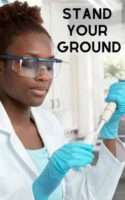“Have you ever felt like you are not smart enough to be a scientist? Is that because you believe it, or because someone told you so. Science gives structure to our curiosity about the world. Everyone is a scientist! But not all feel so welcomed in the field. This story is for the young girls who haven’t been told that they are more than capable of becoming one of the many different types of scientists if they want to. Although we face discrimination and barriers to becoming scientists, there are people in these fields fighting for us to follow our passions.”
Who is a scientist?
A few years ago an old lecturer of mine, Nox, told me a story that stands up tall whenever I think about being a woman in science. She told me how an academic from the psychology department had asked her first-year university class to draw what a scientist looked like to them. “You can imagine the amount of Einstein (a famous scientist) lookalikes that came from those drawings,” she said with disappointment, “and they were from MY class!”. Prof. Nokwanda (Nox) Makunga was one of the first black, female academics employed at Stellenbosch University, and the first black, female scientist employed at the university’s Department of Botany and Zoology (BotZoo).
The point this exercise illustrated is that when people hear “scientist”, they think “white man”. But all of us are scientists! We were all born with an innate curiosity and desire to know why the world is the way that it is. Science is the process of answering questions that we have about the world, like why are flowers different colours? And why do plants die in the heat? Being a scientist can be extremely fulfilling as a career for ourselves, but the understanding we gain from our science must also act as a vital guide for our governments to make decisions that improve the lives of everyone in our societies. People of all genders and races should be able to access the sciences, but there are a lot of barriers that girls have to bash through to be scientists, and a lot of guidance needed along the way. I am writing this post as a way of showing young girls that science is an option for your career no matter how much societal norms have told you that you aren’t smart enough, strong enough, or socially welcomed in the field.
What I do as a scientist.
I am technically a researcher of biology. I study how climate change causes plants and the habitats – or ecosystems that they are in – to change. I spend my time reading lots of papers written by other scientists from the fields of physics, chemistry, maths, earth sciences and biology, so that I can understand how specific plants and habitats in southern Africa interact with the climate they are in and how global warming may change this.
For my current work, I spend sometimes months at a time in the arid deserts of Namibia and South Africa hiking up mountains to sample plant materials from the species that I am studying – the quiver tree. I then take these samples to a lab and dry them and crush them, so that I can then extract their DNA and analyse how it is different on each mountain. I also spend time getting data about the climate in their habitat and use computer programmes to find out how the climate has changed over many years, and how this may have impacted the species’ survival. Although I can carry on being a researcher and work for the government, universities in any country or private companies to tell them how ecosystems or agricultural systems will be impacted by climate change, I have also gained data science skills and computer skills that I can use to get jobs unrelated to my science – which is very reassuring when jobs are so hard to come by.
I didn’t even know I could do that!
Spending time studying the plants and ecosystems of southern Africa is my greatest privilege. To understand our land and our natural heritage, learn indigenous stories of the plants and of how connected people are to the land is not an opportunity afforded to many which I think is a crying shame. I did not always plan to be this kind of biologist. When I was younger, I wanted to be a chef or a lawyer or a journalist, and did not even know that the degree that I did (BSc Biodiversity and Ecology) existed. I loved being in nature, on mountains, in agricultural fields, and decided I wanted to study nature, but I also loved history and culture. I read about an “ethnobotanist” – a person who studies human cultures and how they use plants – in a National Geographic magazine when I was fifteen, and thought to myself, “This is what I want to spend my life doing.” I googled the term and the only ethnobotanist teaching at a university in South Africa that I found was Professor Nokwanda Makunga at Stellenbosch University. She is the reason I set my sights in the direction of my current field.
This was all random, and I count myself lucky that I got to follow this path. There are so many fields in the sciences that young people are not told about at school or at career fairs, which means a lot of people miss the opportunity to study something they are truly passionate about. What I have noticed is that a lot of young girls also end up missing this opportunity because they are told they cannot do it (lived it) or because there are so few people in those fields like us that it feels that we are unwelcome or do not belong. This has to end. Because scientific fields are dominated by cis-gendered, heterosexual white males, the social culture in universities and those professional fields cater to this demographic and has historically been unwelcoming to people outside of this demographic. But this is changing! There are many brave people of colour and people at other points of the gender spectrum who have stood strong in their convictions to follow their passions, and have thus paved a way for future generations of representatively diverse scientists to broaden the scope of the culture within this space.
***
Tell us: Have you ever imagined being a scientist?
Read more here on International women’s day.



